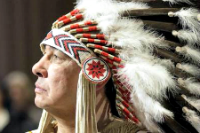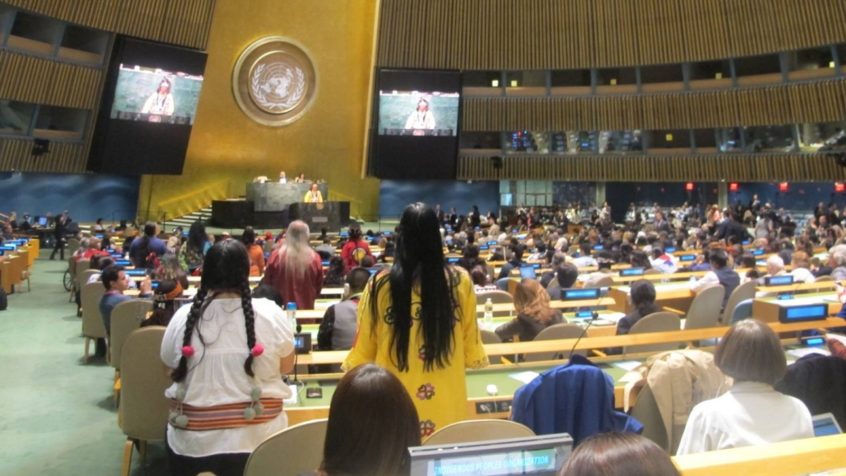In 2020, the fifth anniversary of the SWAP-Indigenous Peoples, the �山����System Chief Executives Board for Coordination (CEB) took the opportunity to revitalize the action plan and strengthen collective and coherent �山����system efforts by endorsing a call to action on building an inclusive,��sustainable��and resilient future with indigenous peoples.��
The call to action was developed through the Inter-Agency Support Group on Indigenous Issues (IASG) and approved by the High-level Committee on Programmes. The call to action affirms the Executive Heads’ commitment to supporting Member States in the promotion, protection and realization of the rights of indigenous peoples and redoubling efforts to ensure collaborative and coherent United Nations system action to support the rights and well-being of indigenous peoples. It aims to:��
- Ensure more systematic participation of indigenous peoples in United Nations processes and initiatives that affect them; ��
- Strengthen targeted actions at the country level to support the rights of indigenous peoples and learning from good practices; ��
- Ensure greater accountability and visibility for the action plan; and ��
- Strengthen the disaggregation of data on indigenous peoples to ensure greater visibility of indigenous peoples and their situation. ��
��
Paragraphs specifically pertinent to indigenous women and the girl child in the Building an Inclusive, Sustainable and Resilient Future with Indigenous Peoples: A Call to Action����
- However, the implementation of these international legal instruments and United Nations frameworks has been uneven. Indigenous peoples, particularly indigenous children, youth, girls and women, elders, persons with disabilities,migrants and refugees, continue to face widespread discrimination and marginalization, which has been further magnified by the coronavirus disease (COVID-19) pandemic. The fifth anniversary of the system-wide action plan on the rights of indigenous peoples provides an opportunity for revitalizing the plan and strengthening collective and coherent United Nations system action. The upcoming International Decade of Indigenous Languages, which the period 2022–2032 has been proclaimed, provides an opportunity to draw attention to the critical loss of indigenous languages and the urgent need to preserve, revitalize and promote them. ��
- Indigenous women and girls face additional forms of discrimination and vulnerability. They are three times more likely to experience sexual violence compared with non-indigenous women and are particularly affected by large-scale land-grabbing and dispossession because of their unequal access to and control over land, territories and natural resources, coupled with their limited mobility, access to justice and decision-making power in the household and the community (E/CN.6/2020/3, para. 278). The negative impact of the COVID-19 pandemic has further exacerbated these existing vulnerabilities. ��
- Response and recovery efforts also need to consider how indigenous peoples, particularly indigenous women and girls, are disproportionally affected by poverty and a lack of access to social protection and how indigenous children and youth experience much higher rates of suicide and self-harm compared with non-indigenous peoples. Public policies and social protection packages designed to reactivate the economy should include indigenous peoples as beneficiaries and incorporate their perspectives and rights into devising and implementing the type of assistance needed. ��
Commitment to Action: ��
Recommit our organizations to providing support, as relevant, to resident coordinators and United Nations country teams, including through the Inter-Agency Support Group on Indigenous Peoples’ Issues, to intensify efforts to implement the action plan, with particular efforts to ensure the more systematic participation of indigenous peoples in United Nations country processes, such as the United Nations Sustainable Development Cooperation Frameworks, and to support Member States in establishing institutions and mechanisms for the consultation of indigenous peoples, as well as ensuring the effective participation of indigenous youth and indigenous women, including in the follow-up to and review of COVID-19 socioeconomic response and recovery plans and the Sustainable Development Goals, and looking to the United Nations Sustainable Development Group to support these efforts��


